Yet Another Red Flag: Adverse Event Rates From mRNA Inoculations Track With Rise In Disabilities
Yet More Data Showing The Toxicity Of The mRNA Inoculations
It has become almost mundane to speak of “red flags” regarding the toxic and deadly mRNA COVID-19 inoculations. That is how often yet another red flag comes to the fore and demands our attention.
Yet here we are, with yet another red flag regarding the toxic and deadly mRNA COVID-19 inoculations coming to the fore and demanding our attention.
Specifically, we are confronted by the analytical work performed by the Humanity Projects Team sponsored by data research firm Phinance Technologies which asserts a strong correlation (and potentially a causal connection), between the mRNA inoculations and levels of disability within the US labor force.
Although a range of factors may be at play, the timing and sudden nature of the increase in disabilities suggest that rollout of vaccination programmes could have caused a significant impact. Other factors (those related to a return of more normal economic and healthcare activity) would be more likely to cause a gradual change in disability rates, beginning earlier in the post-lockdown recovery phases of mid-late 2020.
The assertion that the inoculations are potentially crippling the US labor force is no small allegation, and simple prudence alone demands that we interrogate this thesis to understand what is actually being claimed.
The Humanity Projects Team is, per their website, three individuals with backgrounds in data analytics: Yuri Nunes, PhD, Carlos Alegria, PhD, and Edward Dowd (note: Edward Dowd is also on the Board of Directors of the Malone Institute, whose research doctrine (the Malone Doctrine) the Humanity Projects Team embraces). They have a number of active data analysis projects related to the COVID-19 pandemic and the mRNA inoculations, including an investigation of rising disability rates within the US labor force.
One feature of their analysis that makes it particularly compelling is their use of employment data from the Current Population Survey performed monthly by the Bureau of Labor Statistics. Thus they are using an existing database which extends more than ten years back before the 2020 pandemic. This is data that is accessible to everyone, allowing relatively easy and independent inspection of the source data—the strongest possible means of evaluating their claims.
Disturbingly, even a superficial review of the BLS data suggests their claims have more than a little merit to them.
When we look at the Year on Year changes in the numbers of persons with disabilities within the US population, the civilian labor force, those who are employed, and those who are not in the labor force, we see a significant rise in disabilities beginning in the spring of 2021.
Spring of 2021, of course, was right after the mRNA inoculations began to be administered, so straight away we have a surge in disabilities that broadly correlates to the administration of the mRNA inoculations.
When we look at the Year on Year percentage changes, we see that not only did disability levels surge in the spring of 2021, but that surge occurred not long after similar increases in the uptake of the mRNA inoculations.
Even more damning is that, when we look at the percentage change Year on Year, we find that employed individuals became disabled at a significantly higher rate than the overall population.
Indexing the data to the end of the 2020 recession, we find that employed individuals in the US had the greatest increase in disabilities, showing an over 50% increase in disabled individuals since the 2020 recession. The civilian labor force followed close behind, rising by more than 32%.
Indexing from the start of when the BLS began tracking employment statistics based on disability (June of 2008), we see that the post-pandemic increases are a clear deviation from the long term historical trend.
“Something” is crippling individuals in this country, and doing so primarily within the labor force. The trends leave no room for debate on this point.
The Humanity Projects Team argues—with more than a little supporting evidence—that the “something” very likely is the mRNA inoculations.
Having established the rise in disabilities—using the same data as I used with the above charts—the Humanity Projects Team first shows there is a strong correlation between the rise in disabilities and mRNA inoculation uptake in the United States.
The chart on the left shows the evolution of the disability rate from 2008 to 11/2022 (left axis) with the vaccination data superimposed (right scale). This chart shows the change in disabilities, which started around 2/2021 and accelerated from 5/2021, in a wider context. When comparing with the vaccination data, the results are compelling.
The chart on the right shows the correlation between the rise in the disability rate since 2/2021 with the vaccination data. The regression R2 is close to 90% which is evidence for a strong relationship. We must always consider other external factors that might explain the rise in disabilities and which are also correlated to the vaccination data. This is usually stated as "correlation is not causation". However, in the absence of other explanatory factors, and strong medical evidence of the vaccines causing injuries and deaths, one must consider the relationship seriously.
Next they go beyond the mere correlations between inoculation uptake and disability rates to find stronger and confirming correlations—and they find them by looking at a peer-reviewed safety analysis of the Pfizer and Moderna inoculations1 performed by Joseph Fraiman, et al.
Pfizer and Moderna mRNA COVID-19 vaccines were associated with an excess risk of serious adverse events of special interest of 10.1 and 15.1 per 10,000 vaccinated over placebo baselines of 17.6 and 42.2 (95 % CI −0.4 to 20.6 and −3.6 to 33.8), respectively. Combined, the mRNA vaccines were associated with an excess risk of serious adverse events of special interest of 12.5 per 10,000 vaccinated (95 % CI 2.1 to 22.9); risk ratio 1.43 (95 % CI 1.07 to 1.92). The Pfizer trial exhibited a 36 % higher risk of serious adverse events in the vaccine group; risk difference 18.0 per 10,000 vaccinated (95 % CI 1.2 to 34.9); risk ratio 1.36 (95 % CI 1.02 to 1.83). The Moderna trial exhibited a 6 % higher risk of serious adverse events in the vaccine group: risk difference 7.1 per 10,000 (95 % CI –23.2 to 37.4); risk ratio 1.06 (95 % CI 0.84 to 1.33). Combined, there was a 16 % higher risk of serious adverse events in mRNA vaccine recipients: risk difference 13.2 (95 % CI −3.2 to 29.6); risk ratio 1.16 (95 % CI 0.97 to 1.39)
The Humanity Projects Team review this study in greater detail separately from their incorporation of its findings into their study of disability rates, but note that the study’s results dovetail nicely with the increases in disability rates found in the BLS data.
We find the results very interesting, as they corroborate our findings when investigating the change in disabilities in the population, civilian labour force and employed population, using the BLS (Bureau of Labor Statistics) survey on employment and disabilities.
When they performed a regression analysis of the Fraiman data against the BLS disability data, they found that the correlation between serious adverse events (SAEs) and disability rates was very strong.
The chart on the left shows the time series of the change in disability rate from 2/2021 to 12/2021 for the Civilian Labor Force (left scale), and also the time series of the projected rate of SAEs of special interest (right scale). The chart also shows the time series of SAEs of special interest considering the mean rate of SAEs minus 2 SE to the mean rate plus 2 SE.
The chart on the right shows the correlation between the rise in the disability rate since 2/2021 with the projected cumulative rate of SAEs of special interest. The regression R2 is 87.7% which is evidence for a strong relationship. We should also note that performing the correlation of cumulative time series is misleading, and the R2 should not be taken as an indication of establishing a statistically significant relationship as both time series have autocorrelation.
Nevertheless, the charts below strengthen the case for a causal relationship between the Covid-19 vaccines and disabilities , as the projected SAEs of special interest are based on the rates estimated from analysis of the mRNA vaccine clinical trials. Additionally, under the reasonable assumptions stated above, the time series are shown to be of the same order of magnitude with each excess SAE of special interest (of vaccinated individuals versus placebo) translating into 2.71=1/0.369 disabilities (as measured using BLS data). In other words, the rate of projected SAEs of special interest appears to under-estimate recorded disabilities by about 2.7.
Their argument—which is compelling—is that, as the rate at which serious adverse events accumulate within the safety data correlates to the rate at which disabilities accumulate within the labor force, there is more than a coincidental correlation; their assertion is that these correlations form a strong argument for infering a causal connection between the mRNA inoculations and the emergence of disabilities within the labor force.
Our results provide a stronger case for establishing a causal relationship between disabilities and the Covid-19 vaccines. The time series of SAEs that were computed based on the rates estimated during the mRNA clinical trials are shown to be of the same magnitude as the rate of increase in disability rates in the 16-64 Civilian Labor Force. The rate of estimated SAEs appears to be under-reported relative the recorded rise in disabilities (according to the BLS survey) by about 2.6 times.
These results were expected as we had already shown in part 3 of our study the high correlation between the rise in the disability rate since 2/2021 with the vaccine rollout. We realise that performing the correlation of cumulative time series is misleading and the R2 should not be taken as an indication of establishing a statistically significant relationship as both time series have autocorrelation.
However, the coincidence of the rise in disabilities with the start of the Covid-19 vaccination rollout in conjunction with the similar magnitude of the rate of SAEs (from the clinical trials) and changes in disabilities (from the BLS data) leads to a stronger case for asserting causation.
We believe that a comprehensive investigation needs to be performed, either in the form of new phase III clinical trials for at least a 3-year period, or a programme of forensic autopsies in a large sample of deceased individuals where the Covid-19 vaccines were not suspected as a co-factor for cause of death.
Their analysis at a minimum deserves attention, as it comes after a very long line of other reports and analyses showing significant safety and efficacy concerns for the mRNA inoculations.
We should not forget that Pfizer’s own clinical data largely substantiated the data found within VAERS database.
We should not overlook the numerous studies which have repeatedly called into question both the inoculations’ efficacy and their basic safety.
Nor should we overlook the fact that Kyle Beattie’s big data analysis showing the inoculations contributed to the spread of COVID-19 tracked quite closely with a thumbnail analysis I did at about the same time to illustrate the fundamental failure of the inoculations to halt community spread of the virus.
We should not ignore the studies which indicate the capacity of the mRNA inoculations to be reverse transcribed into human DNA.
In particular we should never forget that the CDC and the FDA lied about their monitoring of the VAERS data for safety signals, and did so to conceal the existence of literally hundreds of such signals.
We should not ignore numerous other safety signals which have emerged challenging the propriety of keeping the mRNA inoculations on the market.
We especially should not ignore Dr. Ryan Cole’s pathology data indicating the mRNA spike proteins are playing a role in various increases in different types of cancers in patients literally around the world.
Remember, even the corporate media has all but admitted that the mRNA inoculations have shown the capacity to trigger and accelerate certain types of cancer.
Against this lengthy and longstanding backdrop of documented (and, in many instances, peer-reviewed) evidence showing serious warning signs regarding the safety of the mRNA inoculations, the Humanity Projects Team analysis of disability rates within the US labor force simply cannot and should not be ignored.
Once again we must state the obvious: Houston, we have MAJOR problems with the mRNA inoculations.
That there is a rise in disabilities and disability rates within the US labor force is an undeniable fact amply documented by the BLS Current Population Survey. No matter what one chooses to believe about the mRNA inoculations, that much is absolutely beyond question.
At the same time, it is also absolutely beyond question that there have been extraordinary rises in serious adverse events surrounding the administration of the mRNA inoculations. The VAERS data demonstrates that conclusively, and the CDC’s own belated safety analysis (which was only disclosed under compulsion of an FOIA request) confirms that, by the CDC’s own criteria, the mRNA inoculations exhibit literally hundreds of safety signals. This is also absolutely beyond question.
Given these two realities, and given the time correlation between the rising rates of serious adverse events and the rising disability rates in the labor force, the strong signals being transmitted here of a disturbing (and possibly causal) connection between the two rates must be taken seriously. Coming as this analysis in the wake of so many other red flags warning of major safety and health concerns with the mRNA inoculations, one could quite plausibly argue this analysis is a damning condemnation of the mRNA inoculations’ safety (or lack thereof).
At the very minimum, we are presented with yet another red flag. At the very least, we are left with yet another argument for pulling the mRNA inoculations from the market, and requiring they be subjected to rigourous and transparent clinical trials clearly establishing both their efficacy as well as their safety before the inoculations can be allowed back on the market.
The CDC and the FDA will almost certainly ignore this latest red flag against the inoculations. You should not. Read the research, and weigh the data. Form your own conclusions about the mRNA inoculations.
Then run like Hell from anyone pushing that poison in your direction.
Fraiman, Joseph et al. “Serious adverse events of special interest following mRNA COVID-19 vaccination in randomized trials in adults.” Vaccine vol. 40,40 (2022): 5798-5805. doi:10.1016/j.vaccine.2022.08.036



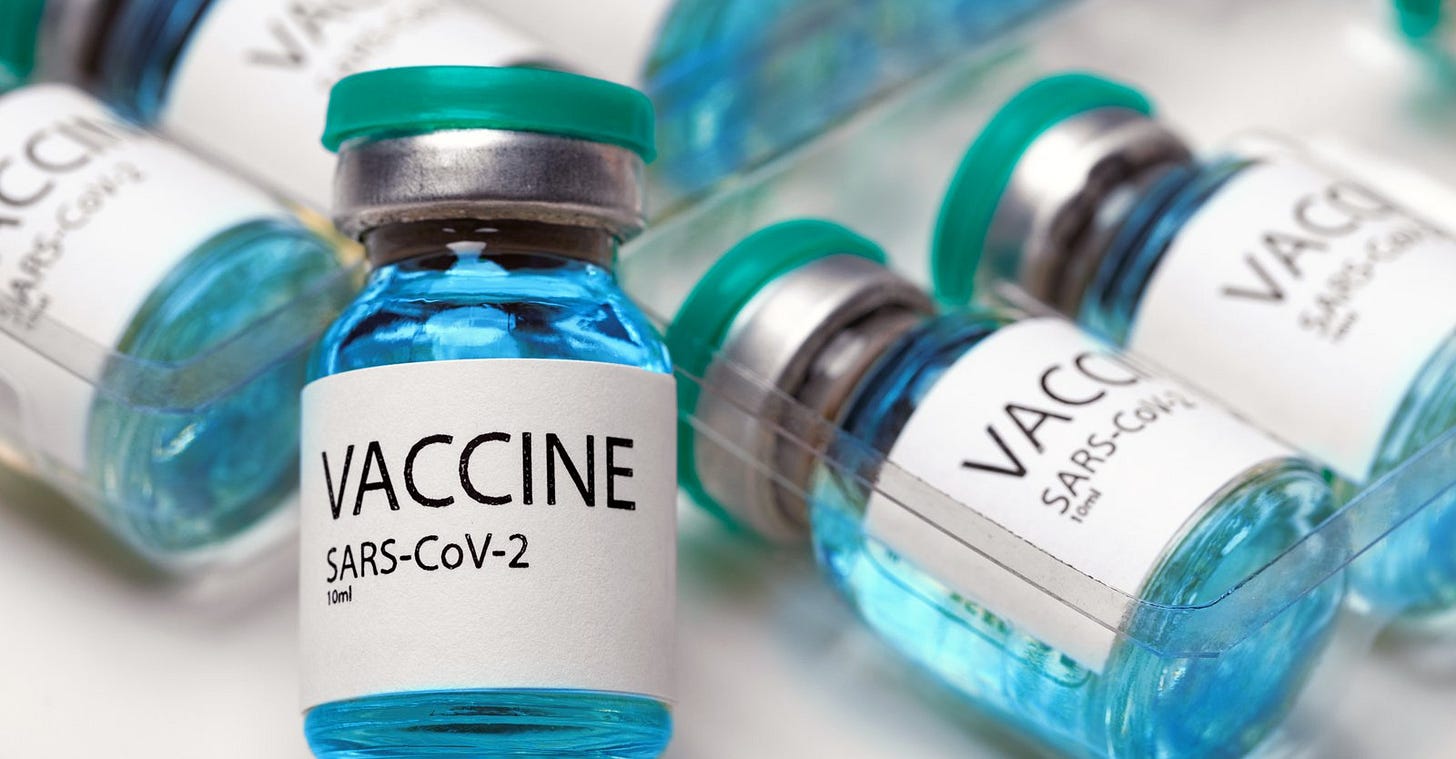
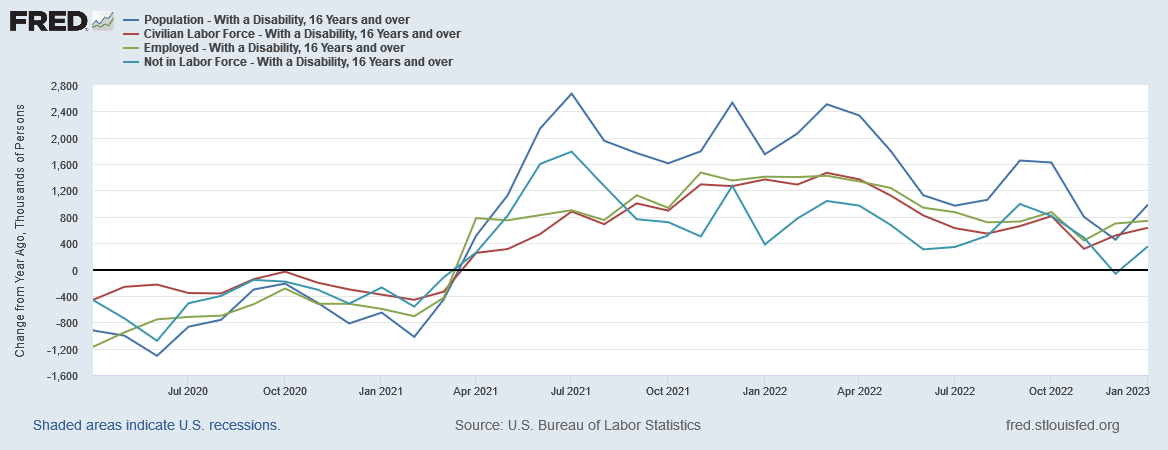
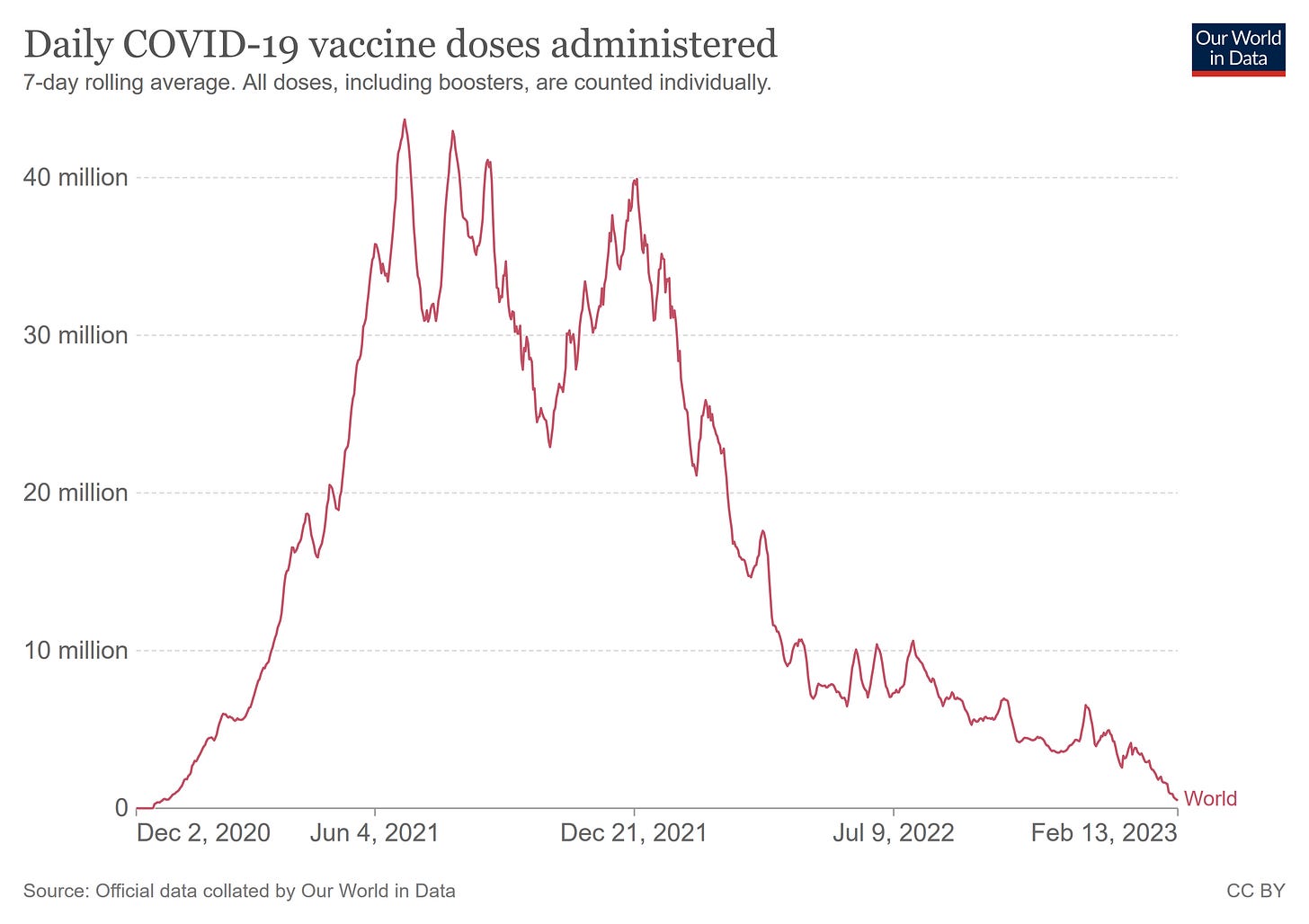
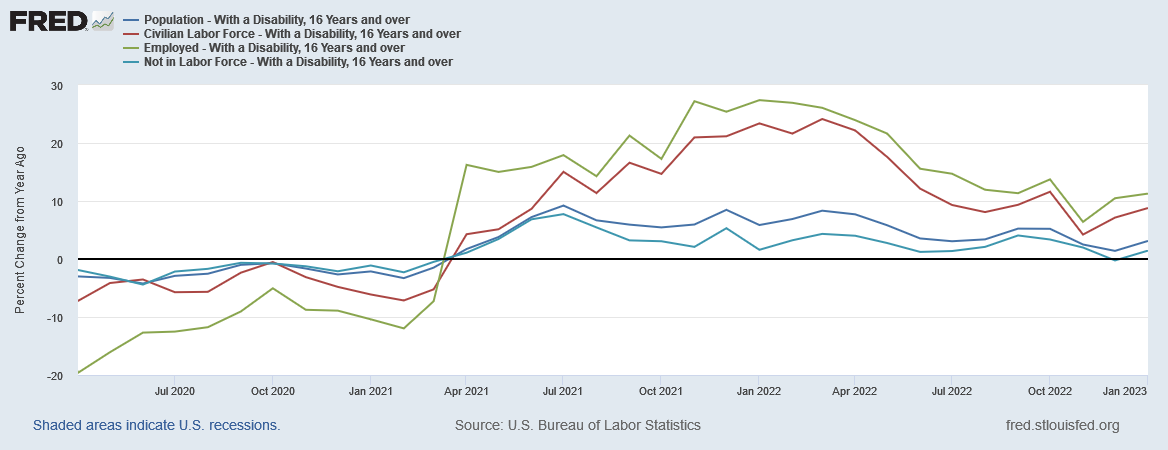
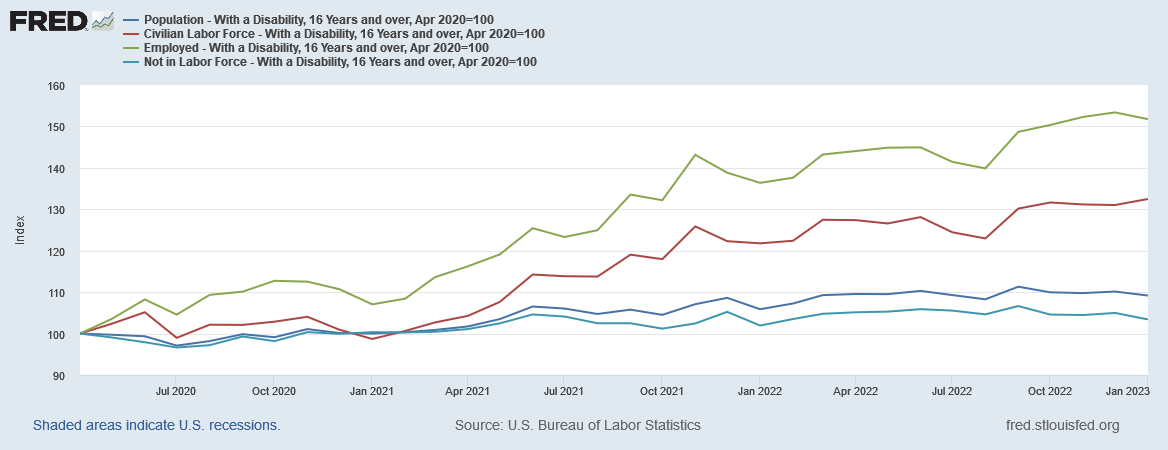
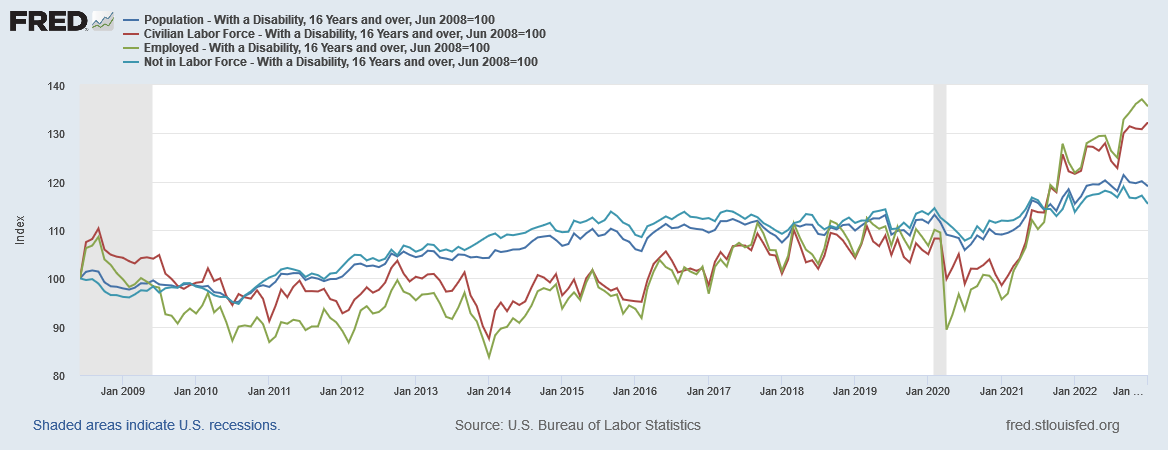
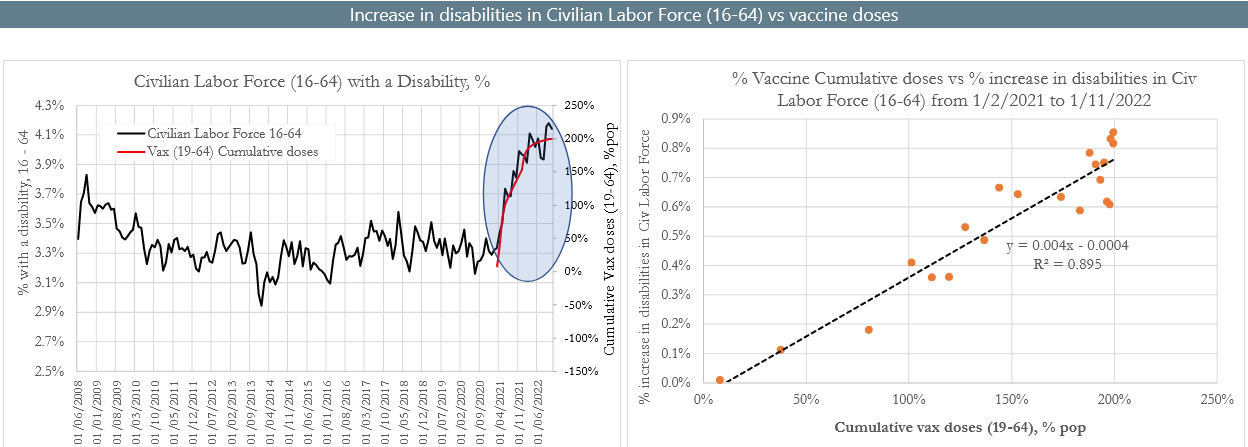


I will be cross-posting. Thank you Tim Lundeen for sending this to me. - JLW
Would that this data and corroboration make it into every newspaper, TV news outlet, medical journal...